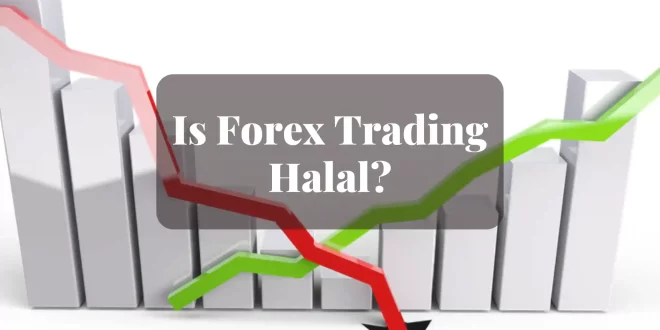Forex trading has gained significant popularity as a potential investment opportunity, attracting individuals from diverse backgrounds. However, for Muslim traders, it is essential to ensure that their financial activities comply with Islamic principles. In this article, we will explore the question, “Is forex trading halal?” We will delve into the key aspects of forex trading in relation to Islamic finance, examining various perspectives and shedding light on the factors that determine the halal status of forex trading.
Section 1: The Concept of Halal in Forex Trading
To assess the permissibility of forex trading in Islam, it is crucial to understand the concept of halal. Halal refers to actions and practices that are permissible and lawful according to Islamic teachings. In Islamic finance, transactions must adhere to specific principles, such as avoiding riba (interest), gharar (uncertainty), and engaging in unethical practices. Evaluating whether forex trading aligns with these principles requires a comprehensive examination of its mechanisms, including the nature of currencies, the concept of speculation, and the presence of interest-based transactions.
Section 2: Currency Trading in Islamic Finance
2.1 Currency as a Medium of Exchange In Islamic finance, currencies are recognized as a legitimate medium of exchange. The buying and selling of currencies for practical purposes, such as travel or commerce, are permissible. However, the permissibility of currency trading for speculative purposes, as seen in forex trading, requires further analysis.
2.2 Speculation and Gharar One of the concerns related to forex trading is the presence of excessive speculation and uncertainty (gharar). Islamic finance discourages transactions that involve excessive uncertainty and risks. Critics argue that speculative trading in the forex market involves elements of gharar, making it incompatible with Islamic principles.
2.3 Interest-Free Nature of Forex Trading Forex trading, unlike certain financial instruments, does not inherently involve interest (riba). However, some argue that interest may be indirectly present in certain aspects of forex trading, such as swap rates or overnight fees charged by brokers. The assessment of these factors plays a crucial role in determining the halal status of forex trading.
Section 3: Diverse Perspectives on Forex Trading in Islam
3.1 Permissibility According to Scholars Islamic scholars have different opinions regarding the permissibility of forex trading. Some scholars consider forex trading permissible when conducted on a spot basis and without involving interest-bearing transactions. They argue that forex trading is similar to the exchange of currencies for practical purposes. However, other scholars express caution and emphasize the need for strict adherence to Islamic principles to avoid potential violations.
3.2 Ethical Considerations In addition to the technical aspects, ethical considerations are also significant when evaluating the halal status of forex trading. Traders should avoid engaging in unethical practices, such as insider trading, manipulating market prices, or taking advantage of information asymmetry. Adhering to ethical conduct is crucial to ensure that forex trading remains in line with Islamic principles.
Conclusion
Determining the halal status of forex trading requires a comprehensive analysis of its mechanisms, Islamic principles, and diverse perspectives. While some scholars consider forex trading permissible within certain guidelines, others express caution due to concerns about speculation and interest-based transactions. It is essential for Muslim traders to seek knowledge, consult with Islamic scholars, and conduct thorough research to make informed decisions that align with their religious beliefs.
 Gassebu Informasi Sekolah Anda Semua
Gassebu Informasi Sekolah Anda Semua
